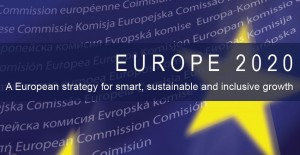 Today Eurodiaconia released its report on members’ experience of the European Semester 2014. This report aims to contribute to the establishment of a renewed European Semester, in the context of the Europe 2020 midterm review.
Today Eurodiaconia released its report on members’ experience of the European Semester 2014. This report aims to contribute to the establishment of a renewed European Semester, in the context of the Europe 2020 midterm review.
This report highlights the need for a renewed European Semester in order to enable a genuine cooperation between civil society and national public authorities for the achievement of targets taken at European level and in particular progress toward better social inclusion and poverty reduction. Eurodiaconia members also believe the European Semester must imperatively change as the main outcome of the current implementation of the European Semester is the reinforcing of EU economic governance and the subsequent subordination of social policies and objectives to economic priorities (e.g. fiscal discipline and social welfare restructuring)
In a first part, the report summarizes Eurodiaconia members’ experience of the European Semester and highlights 7 key recommendations (please see below). In a second part it details members experience an present some examples.
Please see Eurodiaconia evaluation and recommendations of the European Semester 2014 report.
Eurodiaconia recommendations for a renewed European Semester 2015-2020:
- Inclusive growth, as part of the Europe 2020 strategy and all its related targets, must remain the core roadmap for the European Union and therefore the number one priority objective of the European Semester. The European Semester must change its rhetoric to re-focus on poverty reduction and inclusive growth rather than only growth and competitiveness.
- The European Commission must support Member States to actively involve stakeholders and therefore provide guidelines for stakeholders involvement (see annex I: Eurodiaconia’s dashboard reporting tool on stakeholders’ participation in the European semester)
- Reinforce the social dimension of the European Semester through a broader and more socially balanced set of priorities in the Annual Growth Survey and Country Specific Recommendations
- Strengthen social situation monitoring through the development of indicators and their increasing visibility (including a working poor indicator).Acknowledgement of this move would be to add support trigger mechanisms to the social scoreboard for the tools to move beyond its limited analytical purposes. Divergence of social indicators identified in the MIP should trigger the need for a member state to develop a corrective action plan.
- Social investment: take forward the Social Investment Package (SIP) guidelines to EU Member States in using their social budgets more efficiently and effectively by encouraging policies that take on a social investment approach to strengthen people’s skills and capacities and support them to participate fully in employment and social life. However, it is essential to keep in mind that social investment must be based on quality in general and on equal accessibility of services offered in a social investment approach.
- Following on from the Social Investment Package, the AGS 2014 must now specifically urge member states to support and invest in social services. The 2014 AGS must emphasise the potential of social and health services for economic growth, job creation and retention as well as the contribution they make to the overall well-being of society.
- Accompany current policy efforts such as those referred to in the 2013 AGS to reform employment legislation and develop flexible working arrangements by a renewed political commitment to Active Inclusion. This can be done through stepping up policy efforts to ensure accessible quality social services and a guaranteed adequate income and for all (starting with comparative reference budgeting).